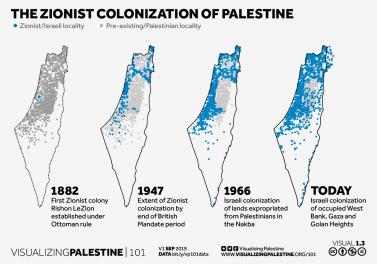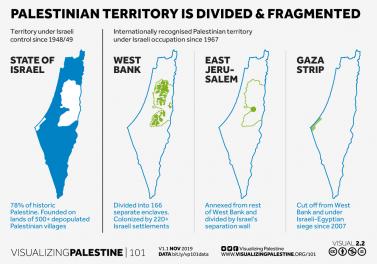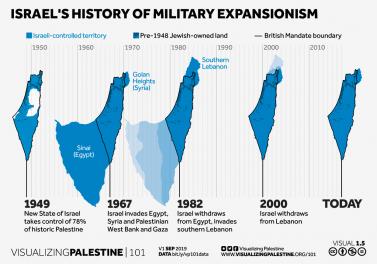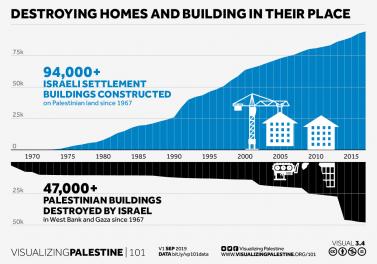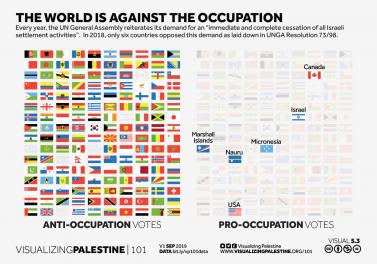According to Article 42 of Hague Convention (IV) “[t]erritory is considered occupied when it is actually placed under the authority of the hostile army.”[1] The civilian populations of occupied territories are protected by international humanitarian law (IHL) and international human rights law (IHRL).[2] In the context of Palestine/Israel, “the occupation” refers to the Israeli regime of control over the Palestinian and Syrian territories it has occupied since the Naksa (1967 war). In law, occupation is assumed to be a temporary situation, and the occupying power is not permitted to actions that would change the political or demographic status of a territory, as Israel has attempted to do through its annexation of East Jerusalem and the Golan Heights, and through its construction of illegal settlements.[3]
Sources

